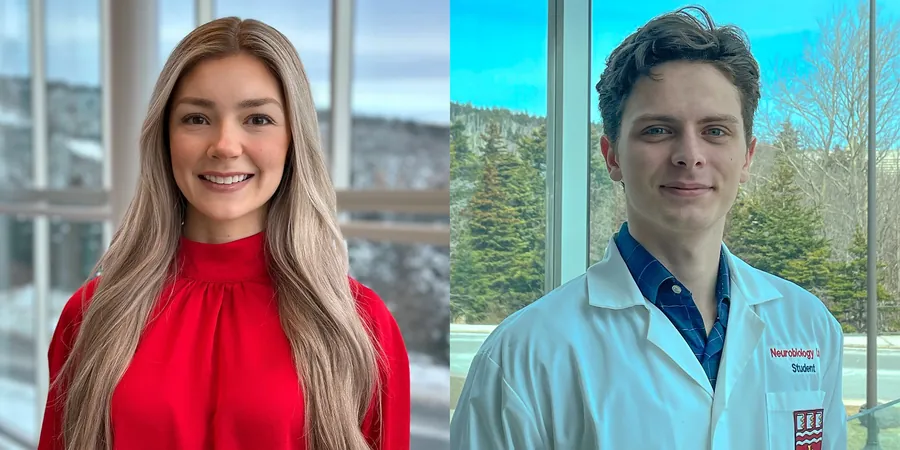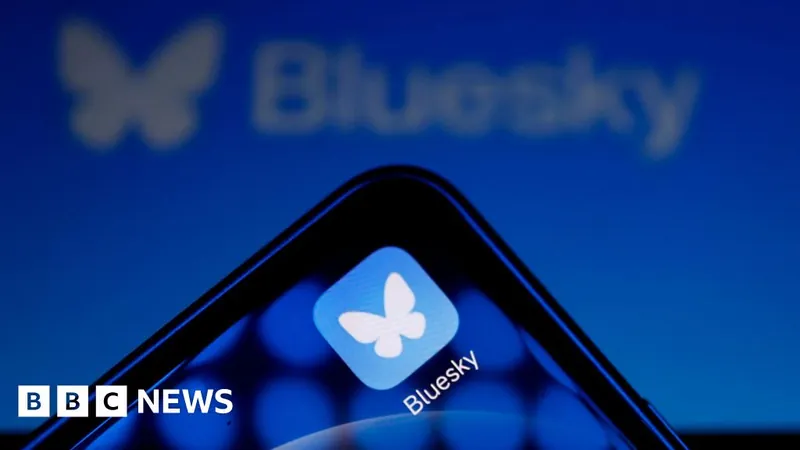
Breaking Barriers in Heart and Brain Research: Meet the Trailblazers!
2024-11-25
Author: Michael
When McCrae Best received the life-changing news about federal funding aimed at heart and brain research, his immediate reaction was to share the joy with his grandmother. “I got a phone call from her, and within 20 minutes, my entire family was texting me!” he exclaimed. Overwhelmed with excitement, McCrae admitted, “I really didn’t think I was going to get it. When I heard, I was over the moon.”
This remarkable funding initiative is part of the multi-year Personnel Awards for Indigenous Scholars, which seeks to eliminate financial barriers for outstanding scholars. It allows them to concentrate on their research and collaborate with mentors in their fields. McCrae, along with School of Pharmacy student Olivia Perry, was fortunate enough to be selected for this prestigious funding.
The awards stem from a collaborative effort by organizations including the Canadian Brain Research Fund, Health Canada, Brain Canada Foundation, and the Heart and Stroke Foundation. All these entities are committed to fostering advanced research to provide better health outcomes for Canadians.
A Journey of Passion: McCrae Best
Born in Saudi Arabia to Canadian parents, McCrae Best spent his formative years in Newfoundland and Labrador, where he felt a deep connection to Memorial University. He started his academic journey at the university, earning a Bachelor of Science in Biochemistry. In September 2023, he embarked on a master’s program in the Faculty of Medicine, under the mentorship of Dr. Jacqueline Vanderluit.
Together, they are conducting groundbreaking research to determine whether omega-3 fatty acids can help reduce inflammation and neurodegeneration following a stroke by studying human neurons derived from stem cells. “If you have a high risk of stroke in your family or through lifestyle choices, having a high omega-3 content in your diet can reduce that risk,” McCrae noted. “We’re investigating if omega-3 could be used as a post-stroke therapy to assist with recovery.”
With nearly $42,000 over the next two years, McCrae can fully concentrate on his research without the constant burden of financial constraints. “Working in a lab is challenging but rewarding. This funding alleviates some of the pressure off graduate students, allowing them to focus on their work,” he reflected gratefully while acknowledging his supportive mentors, Dr. Vanderluit and Dr. Rodney Russell.
Inspiring the Future: Olivia Perry’s Mission
Olivia Perry, a member of the Qalipu Mi’kmaq First Nation, has also been selected for research funding. A doctor of pharmacy graduate from Memorial, she grew up in York Harbour, Newfoundland and Labrador. Today, she is pursuing a research-intensive Master of Science in Pharmacy while balancing her responsibilities as a clinical pharmacist.
Her academic journey is inspiring; it is fueled particularly by personal life experiences, especially following her father's life-altering stroke. Dr. Perry’s research focuses on the alterations in brain blood vessels linked to hemorrhagic strokes, aiming to quantify blood vessel parameters before and after a stroke in animal models. "Currently, there is no effective medication for treating hemorrhagic stroke outcomes aside from surgical interventions,” she explained. “Therefore, foundational studies defining cerebrovascular changes are critically needed."
Supported by Dr. Noriko Daneshtalab and Dr. Michael Doschak, this $25,000 funding will empower Dr. Perry to intertwine her clinical practice with ongoing research initiatives as she progresses in her career. “Dedication and passion are pivotal to success,” she emphasized, highlighting her aspiration to serve as a role model for youth from rural and Indigenous communities, who face gaps in access to higher education opportunities.
Katie Greene, senior vice-president of Heart & Stroke for Newfoundland and Labrador, Nova Scotia, and Prince Edward Island, expressed pride in supporting these exceptional students. “Their research will not only advance heart and brain studies but also work towards improving equitable healthcare for Indigenous communities,” she stated.
As researchers like McCrae Best and Olivia Perry break new ground in the health sciences, they pave the way for future scholars while making significant strides in understanding and improving healthcare for all Canadians, especially Indigenous populations.









 Brasil (PT)
Brasil (PT)
 Canada (EN)
Canada (EN)
 Chile (ES)
Chile (ES)
 España (ES)
España (ES)
 France (FR)
France (FR)
 Hong Kong (EN)
Hong Kong (EN)
 Italia (IT)
Italia (IT)
 日本 (JA)
日本 (JA)
 Magyarország (HU)
Magyarország (HU)
 Norge (NO)
Norge (NO)
 Polska (PL)
Polska (PL)
 Schweiz (DE)
Schweiz (DE)
 Singapore (EN)
Singapore (EN)
 Sverige (SV)
Sverige (SV)
 Suomi (FI)
Suomi (FI)
 Türkiye (TR)
Türkiye (TR)